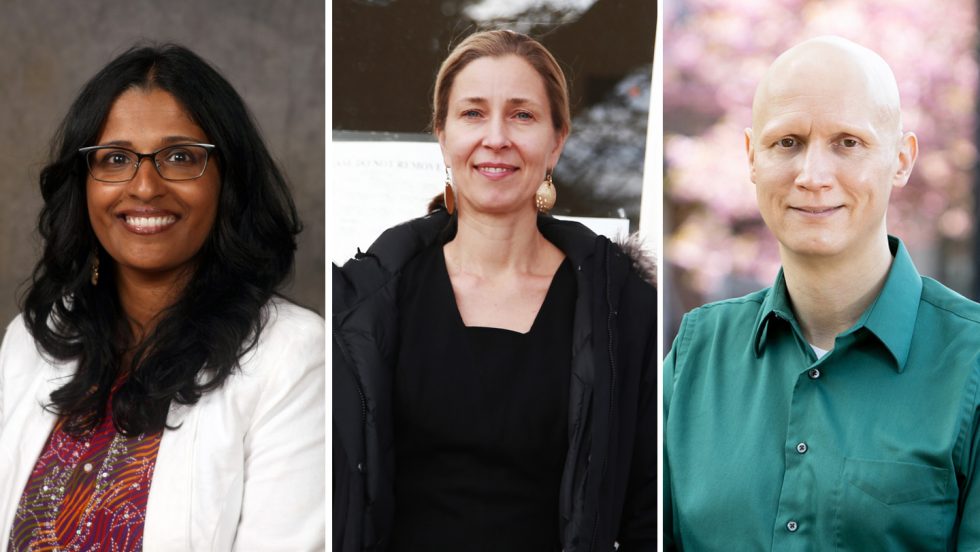
The following faculty members describe their productive sabbatical projects:
Rani Varghese, EdD
My sabbatical project draws on a framework I call “Parenting Is Political,” Varghese, R. and Funk, M. (2019), based on the feminist rally cry, “The Personal Is Political” and the work of antiracist activist Anne Braden (1999), who pushes to understand that the “Political Is Personal.” I plan to utilize my sabbatical to conduct qualitative research on social justice-based parenting and write a peer-reviewed article drawing on the findings of my research. This article will also be an opportunity to further my thinking about the “Parenting Is Political” framework and use this published peer-reviewed article and its implications as a launching pad for a book proposal.
Chrisann Newransky, PhD
I will utilize the time afforded by a semester-long sabbatical to conduct an in-depth analysis of the data collected during the following evaluation studies: Health Integration Program (HIP), 2018–2020; the Certified Community Behavioral Health Clinic (CCBHC) Expansion Program, 2020–2022; and the Interdisciplinary Education and Training Experience (IDEATE) Fellowship Program, 2021–2022. These efforts will lay the groundwork for me to develop manuscripts for submission to peer-reviewed journals and related presentations at professional conferences.
Geoffrey Ream, PhD
The project is entitled “The Impact of Traditional Conservative Religion on LGBTQ+ Youth: A Post-2020 Revisit.” Its aims are to: 1) compare LGBTQ+ 18–29-year-olds who participate in religion with those who do not on variables of mental health, intrinsic, secular attitudes, past spiritual abuse, experiences of sexual orientation/gender identity change efforts (SOCE/GICE), and family religiousness; 2) assess whether family secular attitudes moderate and/or personally held secular attitudes mediate the effects of traditional religious involvement and spiritual abuse on LGBTQ+ mental health; and 3) explore other relationships among study variables, such as correlations between intrinsic religion and internalized anti-LGBTQ+ attitudes, and compare them to earlier findings. Data will come from a Qualtrics survey of at least 1,000 LGBTQ+ 18–29-year-olds from traditional religious backgrounds, at least 350 of whom attend traditional religious services. Funding will come from an NIH R03 small grant. If that does not get funded, a scaled-back version with only religious participants will be conducted using funds from a Wayne F. Placek Award from the American Psychological Foundation or a faculty development award.